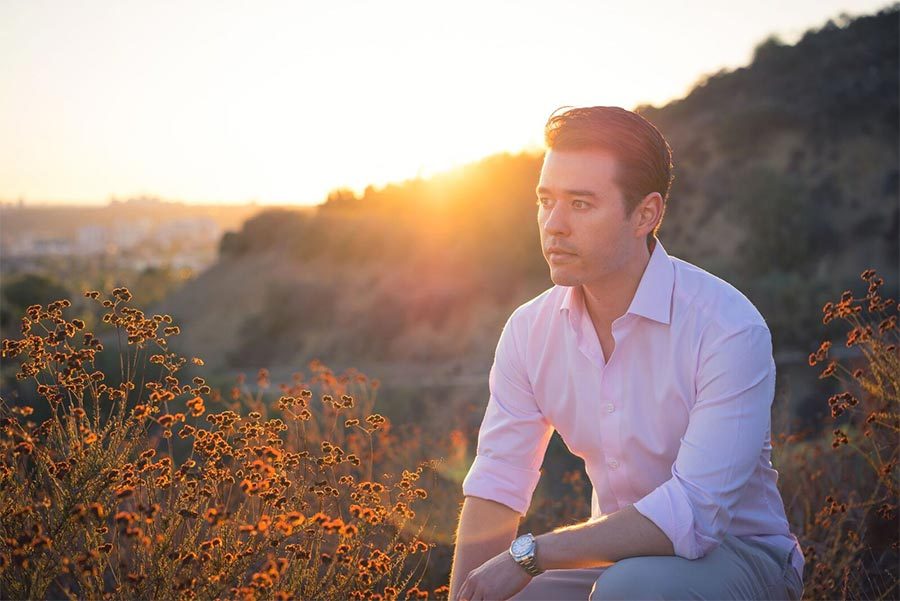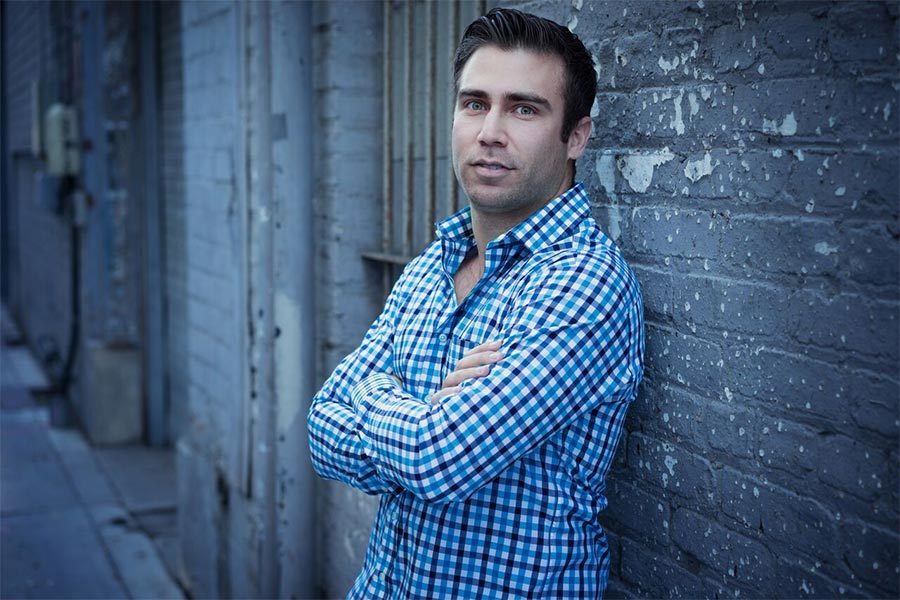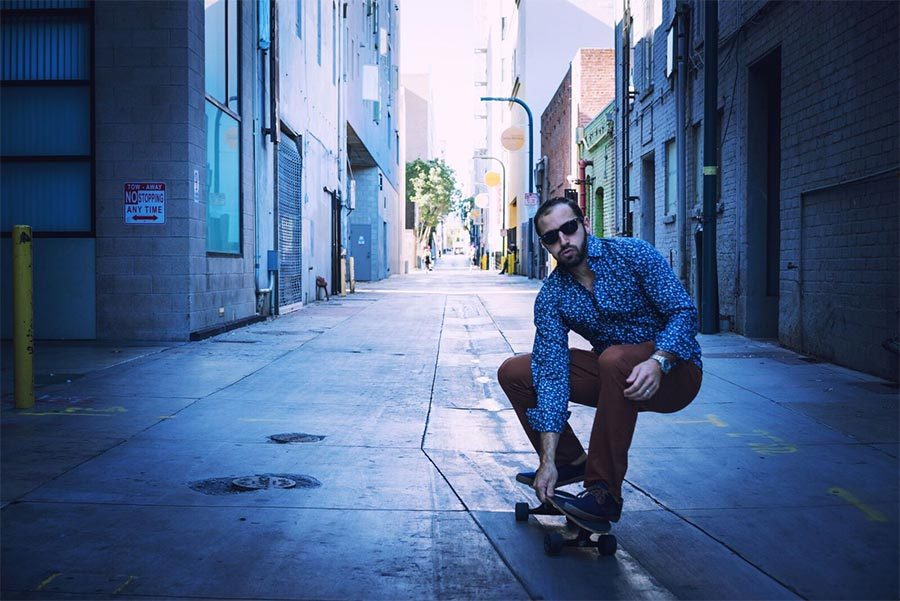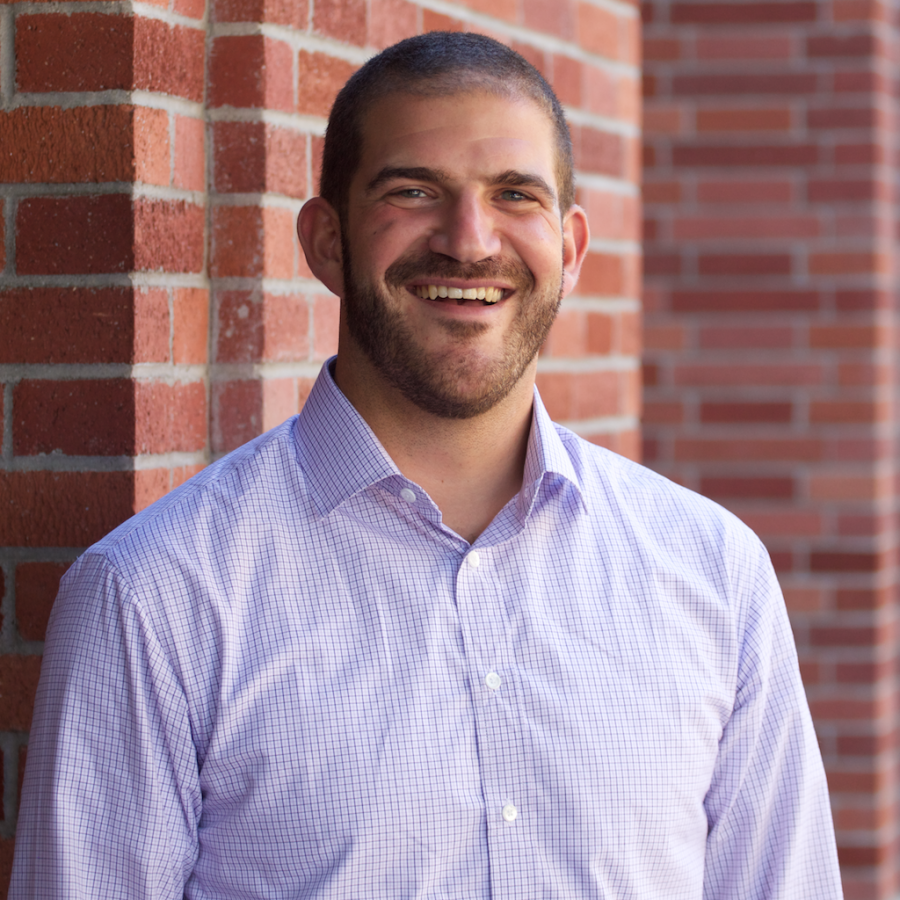
Is there anything sadder than a boring shirt? In a sartorial sense, probably not. Sadly, that’s what the world faces today: too many people wearing boring, baggy shirts. However, that’s all about to change.
Enter Aaron May and Mike Koranda, the co-founders of Pacific Issue. Tasking themselves with the unenviable job of brightening up the world’s bland collection of shirts, the pair handle their business in contagiously energetic and inspiring ways.
Here’s what one half of the duo, Aaron, has to say regarding their business thus far.
That Custom Dress Shirt Maker Interview

What steps did you take and what were the requirements to establish your business?
When we first started, we needed suppliers and we had to continuously develop and test our products. Mike and I met whilst we were getting our MBA’s from the University of Southern California. We started talking about the idea immediately and decided to spend the summer between our first and second years of school launching the business. We spent a month in China, Vietnam, and Thailand looking for the right supplier. We came back to California to develop the product further, among other things. Given that we were in school, we had a supportive audience in our classmates, who became our first beta testers.
What specialists did you need?
We contracted freelancers for graphic design, web development, photography, and videography. We worked closely with master tailors, international shipping experts, and a lawyer for partnership agreement advice. We even hired a comedian to help us write a brand video!
What tools did you use?
The first version of our ecommerce site was on WordPress + WooCommerce. We then ran a crowdfunding campaign through Fundable to raise money for a custom-built website that would provide an improved experience for customers. Our developer built our current site off open source Ruby on Rails applications that run our CMS and our shopfront.
Did you bootstrap your business or did you get funding elsewhere?
We have bootstrapped, in addition to doing rewards-based crowdfunding raises.
Did you have online or local communities that helped you while starting your business?
We both attended classes at General Assembly and other similar workshops for specific skillsets: for example SQL, press relations, and growth strategies. Additionally, we received support from USC in terms of brainstorming with professors and networking within our class. We also read a ton online: everything from Inbound.org to r/entrepreneur, to individual bloggers like Neil Patel and Noah Kagan.
Do you struggle with work-life balance? How can it be achieved?

As co-founders, we both know that more often than not, business comes first. That said, putting the business first also means taking time to step back, gain perspective, and enjoy life with friends and family. If we were heads down working 100% of the time, our creativity would be sapped and we we would burn out quickly. We push each other not just to work harder, but smarter.
What are the things you wished you knew when you were starting your business?
We knew that this would be difficult. Success doesn’t just happen overnight. It’s so hard to know what that feels like before you actually start though. I’m so glad we just dove in; knowing just enough to get to the next milestone is all we really needed.
What kind of company culture do you have? How do you promote productivity?
We made an effort at the outset to define how we wanted to work, interact with our customers, and what voice to portray to the outside. We wrote down a 14-point Manifesto, defined culture values, and posted it on our wall as our reminder.

The culture revolves around putting our customers first, transparency, learning, and having fun.
What style of business management did you apply?
We try to be organized and detail-oriented in everything we do. Everything is run through Asana, meaning whatever we’re working on is visible to the other person. We plan to keep that as we expand, enabling a collaborative business where the best ideas make it to market fast.
What advice from other entrepreneurs do you remember? Did it help you succeed when you followed it?
Listen to what other entrepreneurs have to say. Keep talking to anyone who started a business, whether it succeeded or not. They’ve been there before and you’ll always learn something new with each conversation. Ensure that there’s a “wow” at each customer touch point. You need to exceed customer expectations as much as possible.
What important lesson did you take away from your experience in starting a business that you want to share with others who plan to start their own business?












